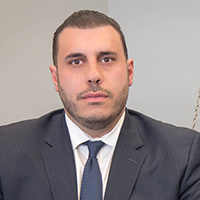Rochester Criminal Lawyer, Michigan
Sponsored Law Firm
-
 x
x

Click For More Info:
-
Law Office of Mark S. Guralnick
55 Madison Avenue 4th Floor Morristown, NJ 07960» view mapCriminal Defense Law Dedicated. Fearless. Successful.
Mark S. Guralnick and his legal team have helped clients throughout the USA and across the world by applying unparalleled dedication and hard work to each case.
800-399-8371
Randall L. Shepard
✓ VERIFIEDFor over three decades, local attorney Randall Shepard has provided legal guidance to clients through Southeastern Michigan. We provide state and fede... (more)
Nickolas Kenny Hannawa
✓ VERIFIEDNickolas K Hannawa is a successful attorney who has been practicing law in Michigan since 2014. He is also a business and property owner, entrepreneur... (more)
Racine Miller
✓ VERIFIEDRacine Miller is the managing partner of The Michigan Law Firm, PC. Ms. Miller is an experienced litigator and trial attorney, who can proudly claim ... (more)
David J. Poulton
✓ VERIFIEDDavid Poulton is a practicing lawyer in the state of Michigan. He received his J.D from Michigan State University College of Law in 1998.
J. Christopher Caldwell
FREE CONSULTATION
CONTACT Mark Guralnick Morristown, NJ
Mark Guralnick Morristown, NJ AboutLaw Office of Mark S. Guralnick
AboutLaw Office of Mark S. Guralnick Practice AreasExpertise
Practice AreasExpertise






